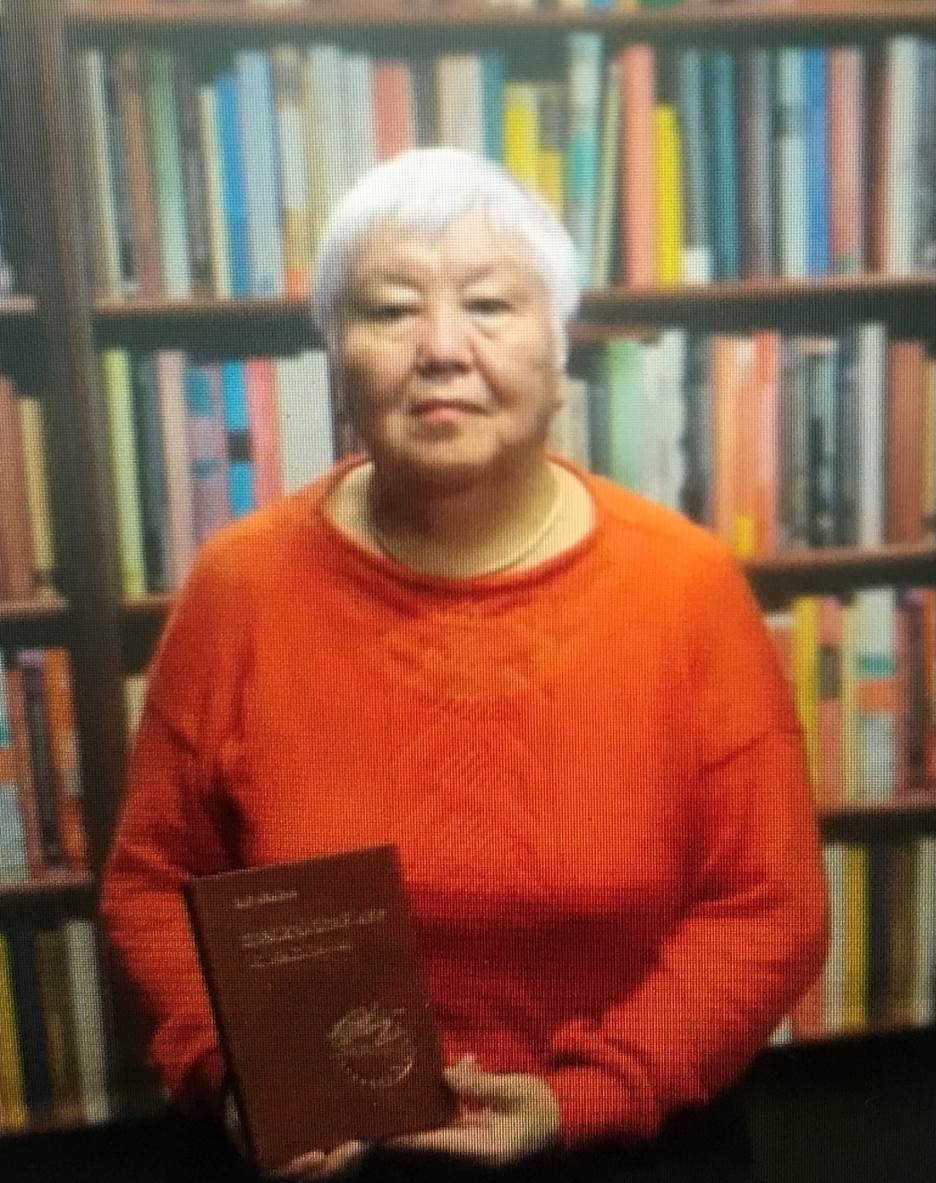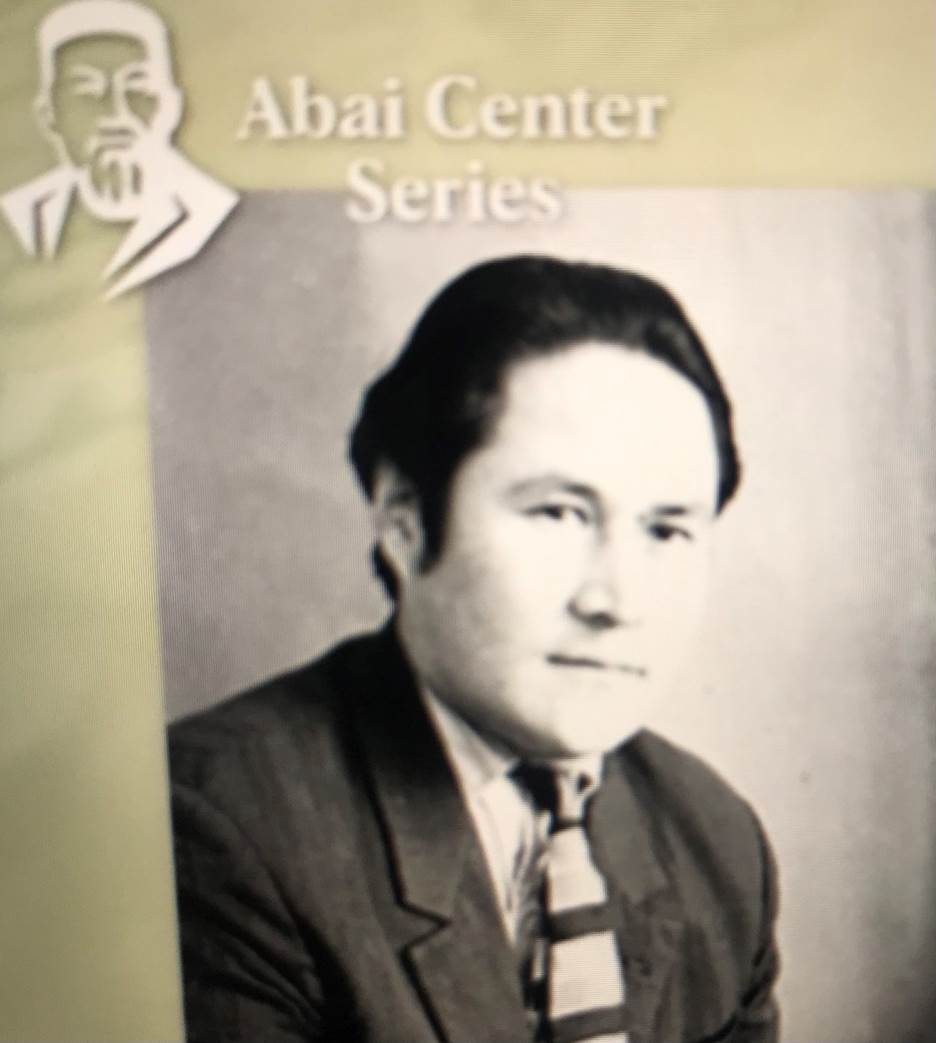

Professor Saule Abisheva

Mukaghali Makatayev
The Life and Poetry of Mukaghali Makatayev
By Elaine Pasquini

Washington: On April 18, the Abai Center at George Washington University hosted a virtual program on the life and poetry of Kazakh poet Mukaghali Makatayev featuring Kazakh National Pedagogical University professor Saule Abisheva. Focusing on twentieth-century Russian and Kazakh poetry, Abisheva has taught at the university in Almaty since 1987. In 2006, she took up her current post as head of the Department of Russian Language and Literature.
“Makatayev is a poet who came from the people,” Abisheva said. “While he exposed himself to the world’s best poetry, he always retained his national identity.” Because his poetry seems to “breath the Kazakh language,” she added, “I believe that Makatayev’s poetry is a brilliant textbook for the study of the Kazakh language.”
Born on February 9, 1931, in Karasaz, a village located near Almaty, “he is the son of the tragic, complex twentieth century,” she noted. “Makatayev is special in that all of his poetry is connected with his native land, and specifically with the village of Karasaz – where he was born, where he spent his childhood, where he first fell in love.” Makatayev frequently wrote about nature – flowers, herbs, mountains, saying: “If you want to find me, look for me in these mountains.”
After the death of his father, Makatayev, age ten, became the caretaker of his family, including his grandmother, mother, and two younger brothers. He survived all the hardships and difficulties of a wartime childhood, and this was reflected in his poetry. Living only to age 45, Makatayev’s short life was like a “starburst,” Abisheva said. “There was happiness, sorrow, and trouble. There was war and the loss of loved ones, yet he rendered a great service to poetry in spite of everything.”
Sadly, Makatayev was not officially recognized for his talent during his lifetime. “While his bright talent excited the imagination of readers, it also sparked a zealous response from his so-called fellow writers,” Abisheva said. “He was excluded from the Professional Writers’ Union and subjected to various political intrigues.” Abisheva related that one day, however, “he turned to his fellow writers and said: ‘Hey, organ-grinders, I am a poet of a new generation. My readers and admirers will still be waiting for me in the 21st century.’”
“Makatayev did not write ideological odes,” Abisheva said. “Instead, his poetry was very close to the Kazakh people, to Kazakh nature…and intelligible to every ordinary person.”
He kept diaries, but they were fragmented. In one he wrote: “The days without poems for me are lifeless. I thank God for giving me this consolation. A poet has his own world, his own society, and his own universe. I live for this and fight for this.”
Working also as a translator, Makatayev rendered classical world and Russian-Soviet poetry into Kazakh. “In my view, one of his greatest achievements was his Kazakh translation of Dante’s Divine Comedy,” she said.
The well-deserved celebration of Makatayev as an outstanding poet came only after his death and not even until the early twenty-first century. Upon his death, Makatayev left behind more than 1,000 poems. He worked in the genre of epic compositions, of which he has more than a dozen, including “When the White Swans Sleep.” His last poem was titled “Requiem to Mozart.”
“Makatayev is unique in his poetic research, in his poetic word,” Abisheva stated. “His words are very simple and accessible. It does not need to be translated with a dictionary. This is a phenomenon of the inner depth of the poet-thinker, the poet-philosopher.”
Following is the English translation of Makatayev’s poem “Dialogue of Love.”
- If I suddenly sink into oblivion like a bird?
- I will search for you the eternity all my life.
- If I suddenly burn to ashes in the fire?
- I will mingle in the ashes of that fire.
- If I suddenly disappear like a mirage?
- I will turn into a wind to reach you there.
- If I bring to you the troubles and despair?
- Hush, my darling, I will bear it anywhere.
(Elaine Pasquini is a freelance journalist. Her reports appear in the Washington Report on Middle East Affairs and Nuze.Ink.)

